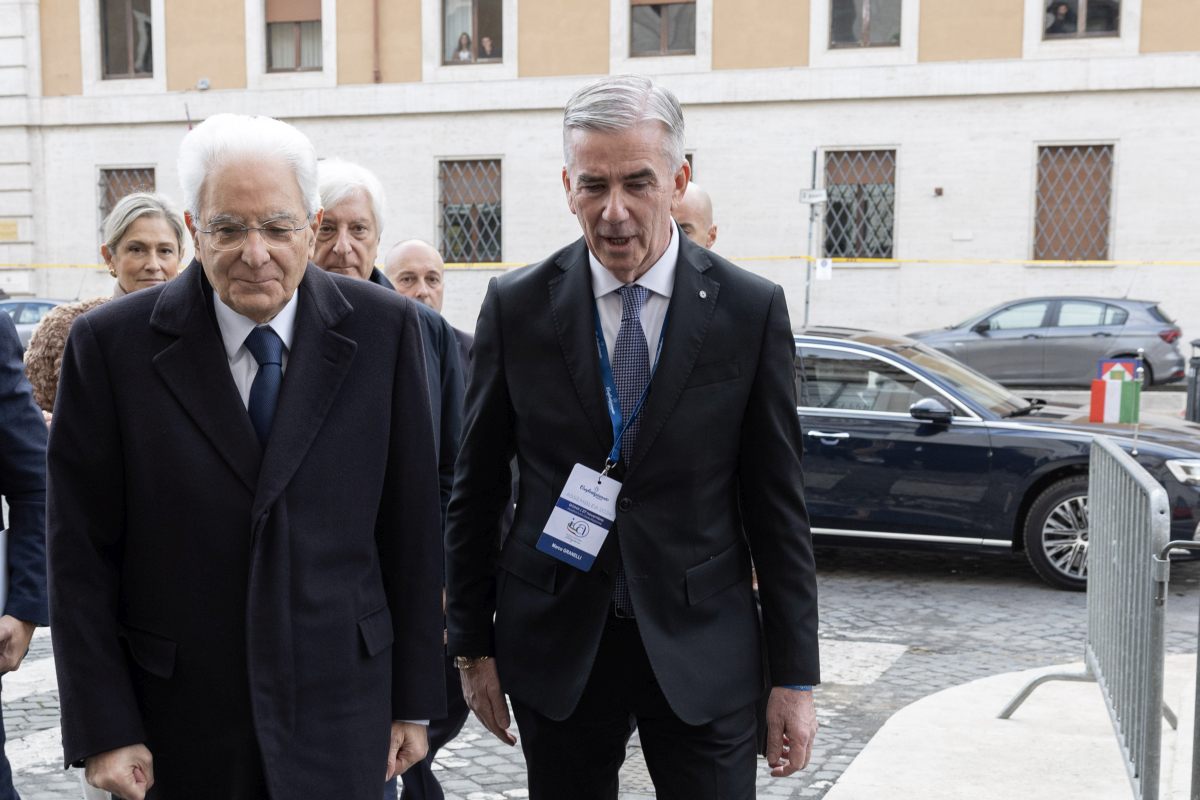ROME (ITALPRESS) – “So many transformations have accompanied, over the centuries, the becoming of Italy. Its economic structure, the birth of cities, all the way to the contemporary phenomena of metropolitan densification and mass manufacturing. But there is one constant in our history. In all these transitions, one phenomenon has never failed. From the time of medieval guilds until today: that of craftsmanship. We could say that in the DNA of the skills and knowledge of craftsmen lies so much of the history of Italy, of which it constitutes, to this day, an engine of development.” Thus the President of the Republic, Sergio Mattarella, during the 2024 Assembly of Confartigianato, stressing that “no one can consider them a residual part of the economy. Handicrafts occupy a crucial role for communities. It helps them function better, defends territories, and offers prospects of freedom and creativity to young people. Being a craftsman is not just any job. Confartigianato does well to be engaged in the field of fostering ‘doing business,’ offering training paths, and launching initiatives such as the ‘School and Crafts’ project in Ethiopia. The increase of artisans among immigrants is a positive sign. It helps enrich and keep alive skills and trades that can reactivate circuits at risk of interruption. It develops talents, innovates products and markets,” he noted.The head of state then pointed out that “social interlocutors, intermediate bodies, alongside their activity of representing interests, express a valuable function as social actors. The dialogue you have with the institutions, with the territories, represents fertile humus for democracy in our country, proposing a channel of participation that is more necessary than ever in an age of bewilderment. The difficulties of the present occupy much of our attention, and our concerns. There are robust reasons,” Mattarella continued, “starting with the wars that have resurfaced on our Continent and in our Mediterranean and their inevitably dramatic effects. There are challenges regarding concrete choices, and I hope that the dialogue between institutions and social partners, between the various levels of institutions and intermediate bodies, will always be open and constructive. So is the dialogue on your part with labor organizations. The confrontation between businesses and workers’ organizations is essential to make the ground fertile and build a more shared welfare.”During the 2024 Assembly of Confartigianato, which was attended by, among others, the Minister of Enterprise and Made in Italy, Adolfo Urso, and the Minister for Universities and Research, Anna Maria Bernini, the Report of the Confartigianato Studies Office was presented, from which it emerges that the tax burden in 2024 registers 36.6 billion more taxation on Italian citizens and businesses than in the Eurozone, equal to 620 euros per capita more. Adding to the weight of the tax burden is the beating of high utility bills: in the two-year period 2022-2023, Italian small businesses paid 11.8 billion more for electricity than the average of Economic and Monetary Union countries.But that’s not all. Also “the Russian-Ukrainian conflict,” said Confartigianato President Marco Granelli, “has caused the loss of 13.4 billion in exports to these two countries, with a higher cost of buying energy from abroad of 78.9 billion euros. Rising interest rates to counter inflation have led to 44.3 billion in higher borrowing costs for businesses over the past two years and a drop in loans, which as of September was 2.4 percent. All this makes the future increasingly uncertain and increases concerns, both for the present and for what we might leave to the next generations. There is a need for the reinterpretation, after 40 years, of the Framework Law for Crafts, which is now inadequate and outdated with respect to a sector that is experiencing a strong evolution. There is still much to be done to create an environment conducive to entrepreneurial drive: bureaucracy, taxation, difficulty in accessing credit, energy costs, and infrastructure conditions become barriers that discourage the best wills to set up on their own. We,” Granelli assures, “in our role as an intermediate body, continue to work together with the government to find solutions and tools to remove obstacles to the freedom of enterprise and better face the challenges of the new complexity and transitions. And we want to do this by pursuing action aimed at protecting our businesses, but always within the framework of the general interest.”
– Quirinal press office photo –
(ITALPRESS).

